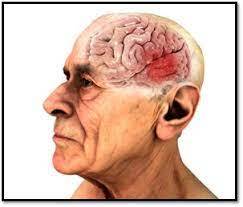Unraveling the Mystery of Alzheimer's Disease: Understanding, Treatment, and Hope
**Introduction:**
Alzheimer's disease, a progressive neurodegenerative disorder, has long been a formidable foe in the realm of medical science. First described by German psychiatrist and neuropathologist Alois Alzheimer in 1906, this condition has since become one of the most prevalent forms of dementia worldwide. Over a century of research has shed light on various aspects of Alzheimer's disease, yet much of its complexity remains shrouded in mystery. In this comprehensive exploration, we delve into the intricacies of Alzheimer's disease, from its underlying mechanisms and risk factors to current treatment approaches and ongoing research endeavors, all while emphasizing the importance of fostering hope in the face of this challenging condition.
**Understanding Alzheimer's Disease:**
Alzheimer's disease is characterized by the gradual and irreversible deterioration of cognitive functions, including memory, reasoning, and language skills. It is the most common cause of dementia, contributing to approximately 60-70% of all cases. While Alzheimer's primarily affects older adults, cases of early-onset Alzheimer's can manifest in individuals as young as their 40s or 50s.
**Mechanisms of Alzheimer's Disease:**
The hallmark pathological features of Alzheimer's disease include the accumulation of abnormal protein aggregates in the brain, namely beta-amyloid plaques and tau tangles. Beta-amyloid, a peptide fragment derived from the larger amyloid precursor protein (APP), forms insoluble plaques outside neurons, while tau proteins aggregate into twisted fibers within neurons, disrupting their function and connectivity. These pathological changes lead to neuronal death and the progressive loss of brain tissue, particularly in regions crucial for memory and cognition, such as the hippocampus and cerebral cortex.
**Risk Factors and Genetics:**
While advancing age is the primary risk factor for Alzheimer's disease, other factors such as genetics, lifestyle, and environmental influences also play significant roles. Certain genetic mutations, such as those in the genes encoding for APP, presenilin-1, and presenilin-2, are associated with familial forms of early-onset Alzheimer's disease. Additionally, the apolipoprotein E (APOE) gene, particularly the ε4 allele, is a well-established genetic risk factor for late-onset Alzheimer's.
**Clinical Presentation and Diagnosis:**
The clinical presentation of Alzheimer's disease typically follows a progressive trajectory, starting with subtle memory lapses and confusion and eventually evolving into profound cognitive impairment and functional dependence. Diagnosis relies on a comprehensive assessment of the individual's medical history, cognitive function, and neuroimaging studies, often complemented by cerebrospinal fluid analysis or positron emission tomography (PET) scans to detect characteristic biomarkers of Alzheimer's pathology.
**Current Treatment Approaches:**
While there is currently no cure for Alzheimer's disease, several treatment modalities aim to alleviate symptoms and slow disease progression. Pharmacological interventions such as cholinesterase inhibitors (e.g., donepezil, rivastigmine) and N-methyl-D-aspartate (NMDA) receptor antagonists (e.g., memantine) are commonly prescribed to improve cognitive function and manage behavioral symptoms. Non-pharmacological strategies, including cognitive stimulation, physical exercise, and psychosocial interventions, also play an essential role in enhancing quality of life for individuals with Alzheimer's disease and their caregivers.
**Emerging Therapeutic Strategies:**
The pursuit of disease-modifying treatments for Alzheimer's disease remains an area of intense research and innovation. Experimental approaches targeting beta-amyloid and tau pathology include monoclonal antibody therapies, beta-secretase inhibitors, and tau aggregation inhibitors, though clinical trials have yielded mixed results thus far. Other promising avenues of investigation involve neuroinflammation modulation, synaptic protection, and epigenetic modulation, reflecting the multifaceted nature of Alzheimer's pathogenesis and the need for comprehensive therapeutic interventions.
**The Role of Precision Medicine:**
As our understanding of the genetic and molecular underpinnings of Alzheimer's disease continues to evolve, the concept of precision medicine holds promise for tailoring treatment approaches to individual patients' unique profiles. Biomarker-based diagnostics and personalized therapeutic strategies aim to identify individuals at risk of developing Alzheimer's disease at earlier stages and intervene with targeted interventions to mitigate disease progression.
**Hope on the Horizon:**
Despite the formidable challenges posed by Alzheimer's disease, there is cause for optimism on the horizon. Collaborative efforts among researchers, clinicians, advocacy groups, and policymakers are driving progress in understanding the disease's mechanisms, developing innovative treatments, and improving care delivery and support services for affected individuals and their families. From advancements in early detection technologies to breakthroughs in experimental therapeutics, the collective pursuit of a world without Alzheimer's disease offers hope for a brighter future.
**Conclusion:**
Alzheimer's disease represents a significant global health challenge, with profound implications for individuals, families, and society as a whole. While much remains to be elucidated about its complex pathophysiology and optimal management strategies, ongoing research endeavors continue to push the boundaries of scientific knowledge and innovation. By fostering interdisciplinary collaboration, promoting public awareness and advocacy, and investing in research and healthcare infrastructure, we can strive towards a future where Alzheimer's disease no longer casts a shadow of uncertainty and fear, but instead, stands as a conquered frontier in the realm of human health and well-being.




No comments yet
Be the first to share your thoughts!